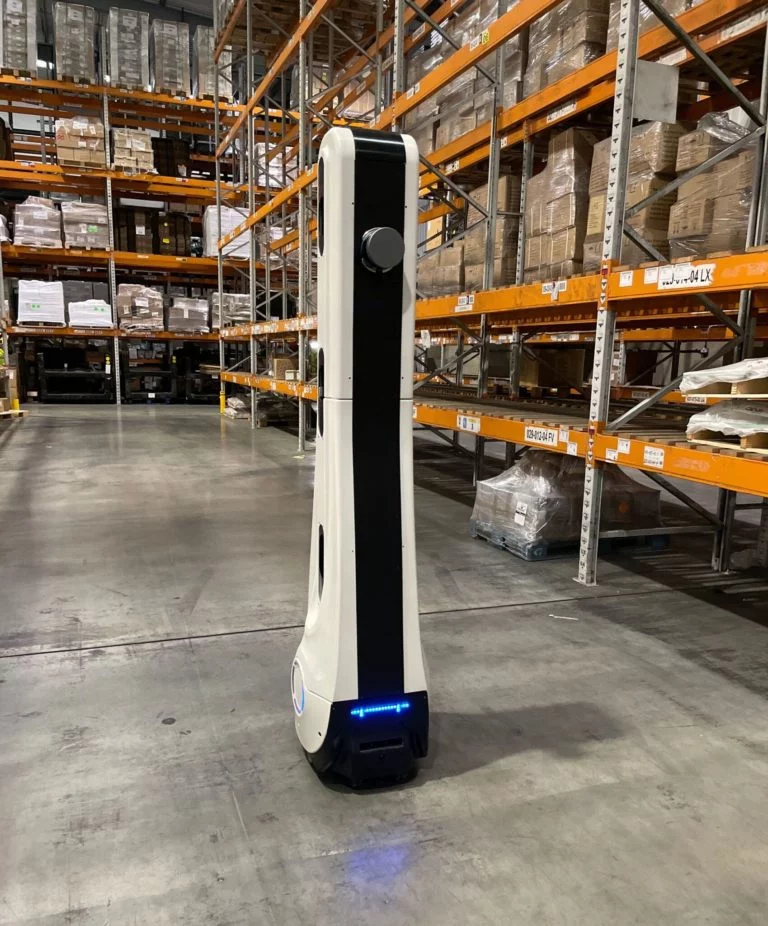Logistics firms can achieve smooth cash flow in peak periods, writes Pascal Chandler (pictured), business consultant at cloud-based accountancy software, bluQube
As the logistics industry gears up for the golden quarter, companies are focused on readying their operations to meet increased consumer demand. This period is vital for the sector, requiring meticulous planning in inventory management, workforce consolidation, and supplier coordination. However, while many companies are well-prepared on the operational front, an often-overlooked aspect is the robustness of their financial systems.
During peak retail periods, logistics companies encounter a surge in order volumes, fluctuating costs, and tight deadlines. Without an efficient and adaptable financial system, these pressures can quickly escalate into significant challenges, affecting both operational performance and financial health.
With that said, let’s assess how logistics companies can leverage financial technology to streamline their financial processes and ensure they are fully prepared for the demands of the golden quarter.
The financial strain of peak periods
The peak sales season presents unique financial challenges for logistics companies. The surge in consumer demand leads to higher transaction volumes, increasing the complexity of cash flow management. Companies must navigate rising operational costs, from fuel and wages to additional staffing and overtime pay. At the same time, they face the risk of delayed payments from customers, which can strain cash reserves and disrupt financial planning.
For companies relying on outdated or manual accounting systems, these challenges are even more prominent. Such systems often lack the agility needed to process large volumes of transactions quickly, leading to bottlenecks in invoicing, payment processing, and financial reporting. In contrast, adopting a cloud-based accountancy system can provide logistics companies with the tools they need to manage these challenges more effectively, ensuring smoother operations and better financial outcomes.
Automating invoicing to improve cash flow
One of the most significant advantages of cloud-based accountancy software is its ability to automate invoicing processes. During peak periods, the volume of invoices sent and received can overwhelm manual systems, leading to delays and errors. These issues not only hinder cash flow but can also damage relationships with suppliers and customers.
Automated invoicing streamlines this process by ensuring that invoices are generated and sent promptly, reducing the risk of errors and delays. For logistics companies this is particularly important, as they often deal with multiple vendors and transport partners, each with its own payment terms. Automated systems can also send out reminders to customers about upcoming payment deadlines, helping to minimise the risk of late payments and improve overall cash flow management.
Moreover, cloud-based systems enable businesses to receive purchase invoices from suppliers via email. Advanced features like optical character recognition (OCR) can read and automatically enter invoice data into the system, further reducing the administrative burden on finance teams. This automation not only speeds up the invoicing process but also frees up staff to focus on more strategic tasks, such as financial forecasting and cost management.
Real-time expense tracking and financial visibility
In addition to invoicing, cloud-based accountancy software offers powerful tools for tracking expenses in real-time. For logistics companies, which face a wide range of daily expenses – from fuel and vehicle maintenance to warehousing and labour costs – keeping a close eye on spending is crucial. By automating data entry and categorisation, these systems help finance teams quickly identify any areas of excessive spending that could impact cash flow.
The real-time nature of cloud-based software also means that financial data is accessible anytime, anywhere. This is particularly beneficial for logistics companies with operations spread across multiple locations, as it allows for seamless expense tracking and financial management across the entire organisation. The result is a more comprehensive view of overall spending, enabling better decision-making and more effective cash flow management.
Enhancing agility with real-time reporting
The ability to generate real-time financial reports is another key benefit of cloud-based accountancy software. In an industry where economic conditions can change rapidly, having up-to-date financial information is critical for making informed decisions. Real-time reporting allows logistics companies to monitor their cash flow closely, adjust their budgets as needed, and plan for different scenarios.
With detailed cash flow statements and reports, companies can categorise their transactions into operating, investing, and financing activities, giving them a clearer picture of their financial health. This level of visibility supports more accurate forecasting and long-term planning, ensuring that logistics companies remain agile and responsive to any challenges that arise during peak periods.
As logistics companies prepare for the demands of the peak sales season, it’s essential to ensure that their financial systems are up to the task. By adopting cloud-based accountancy software, companies can streamline their invoicing processes, improve cash flow management, and gain real-time visibility into their financial performance.
These benefits not only help companies navigate the challenges of peak periods but also position them for long-term success in an increasingly competitive market. With the right technology in place, logistics companies can enter the golden quarter with confidence knowing that their finances are in good hands.
similar news














